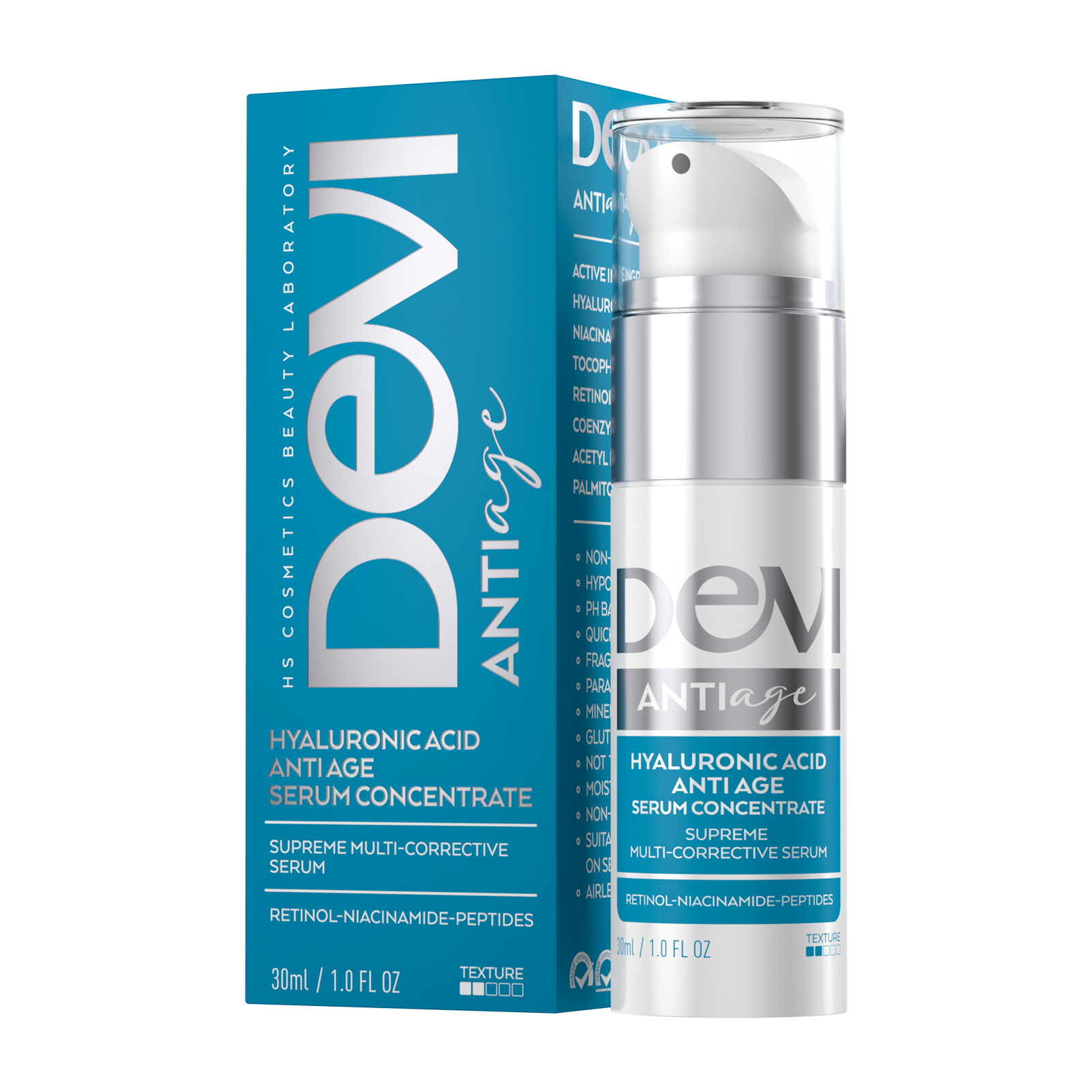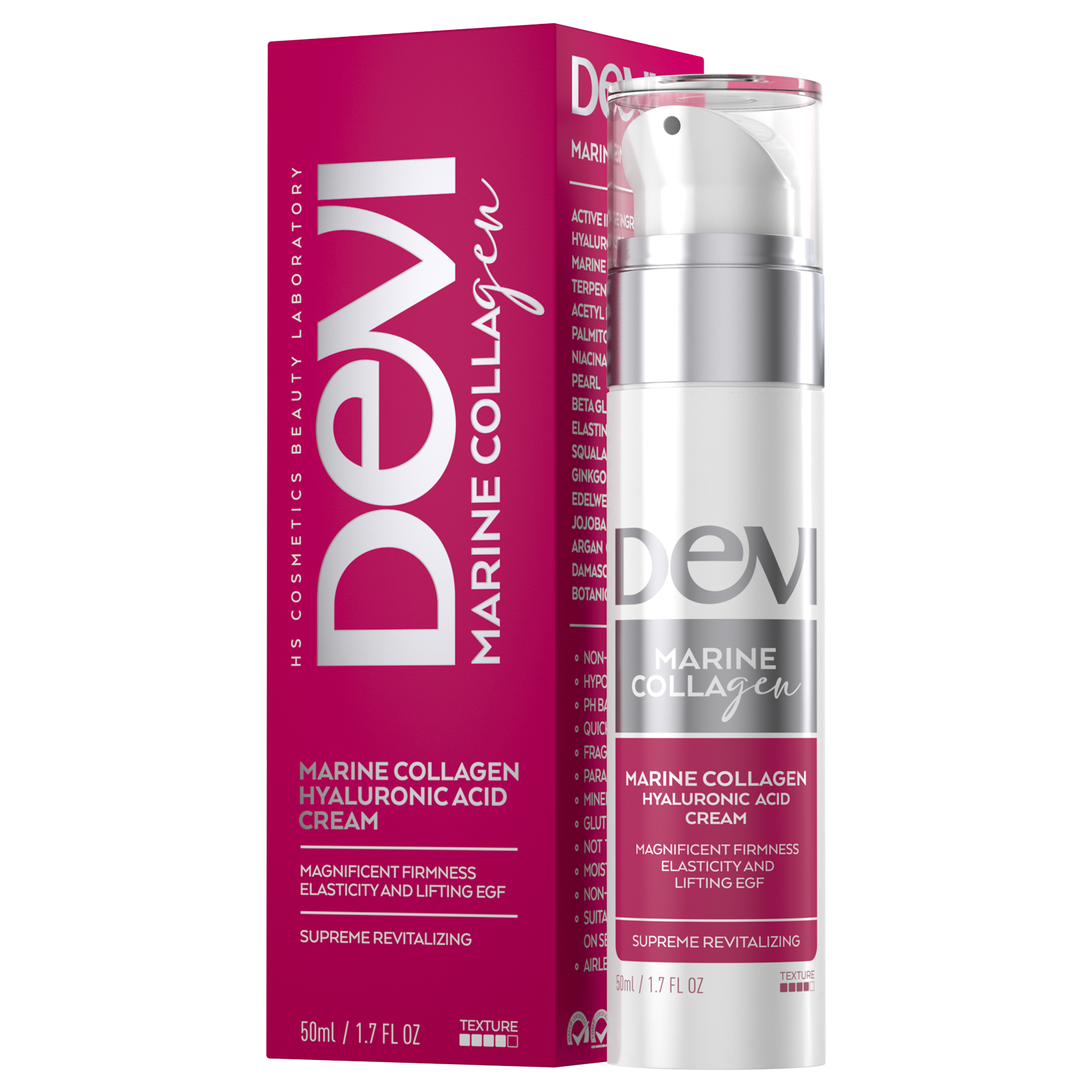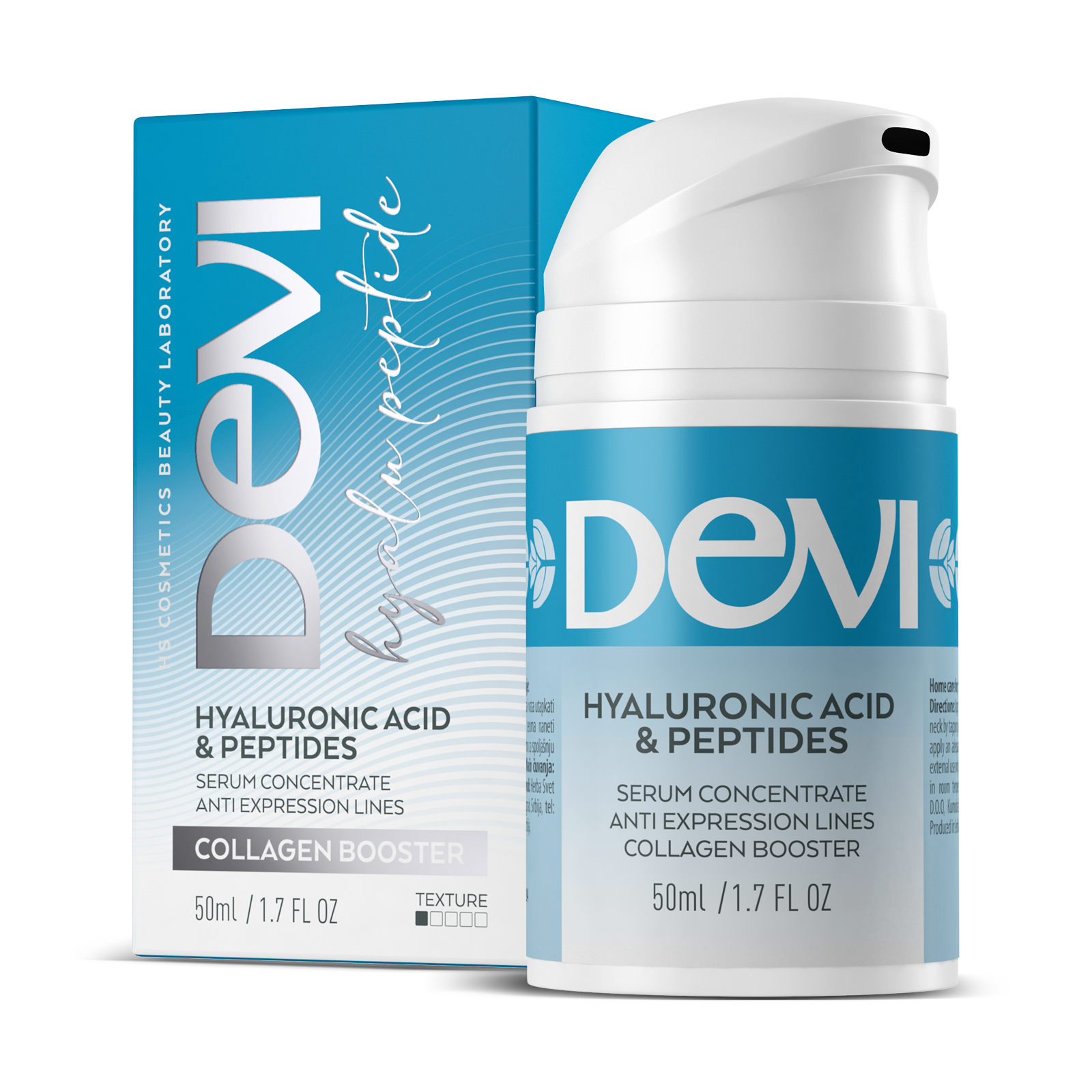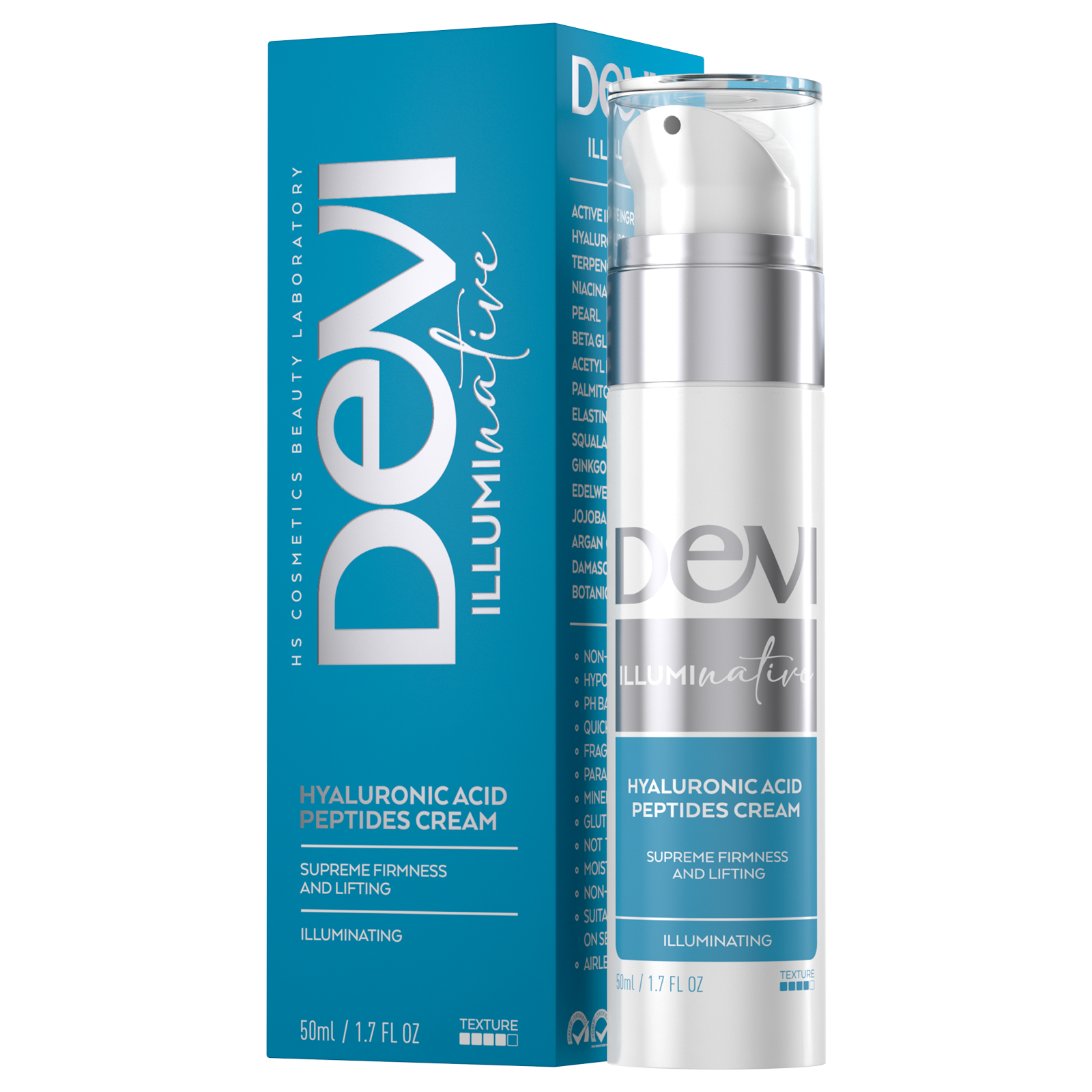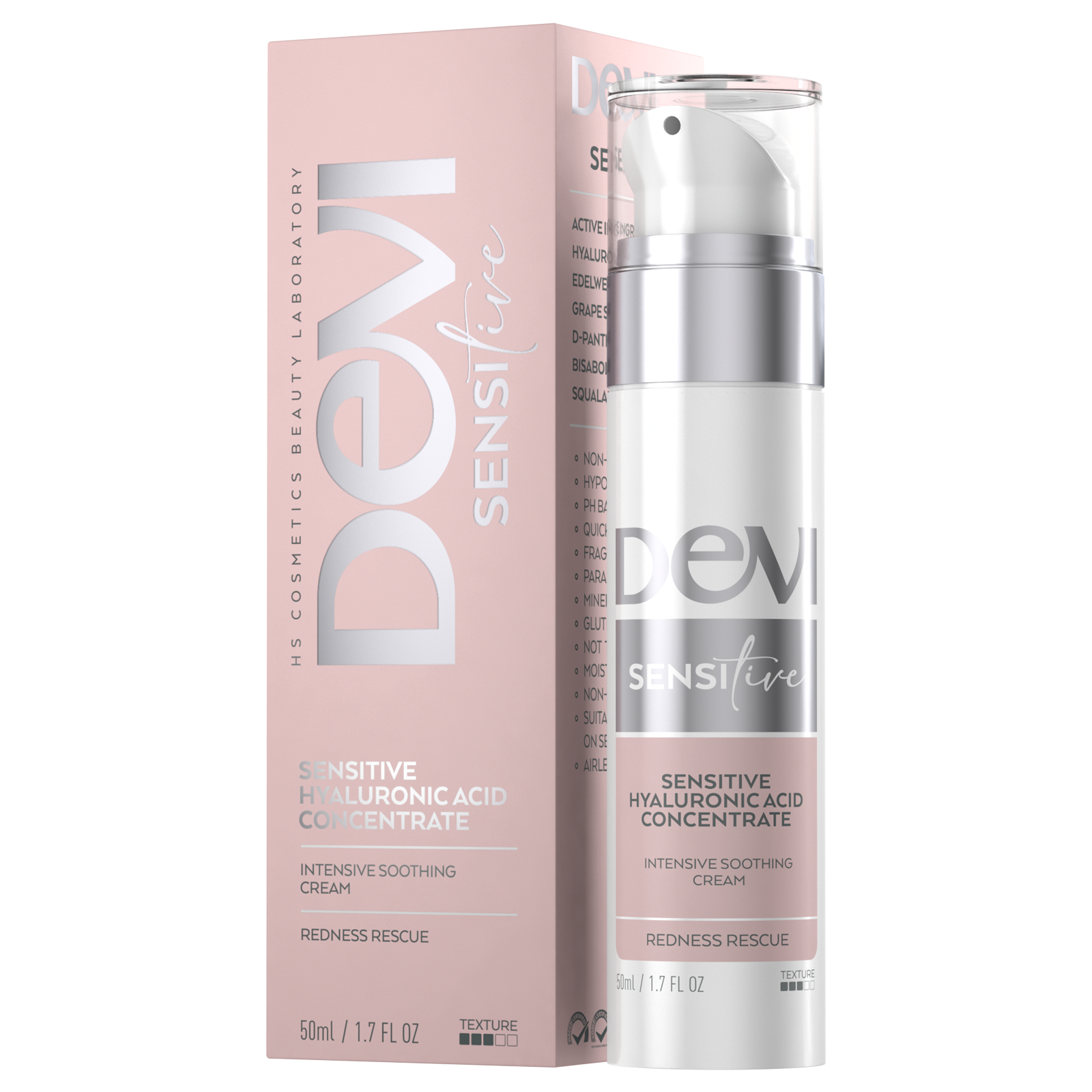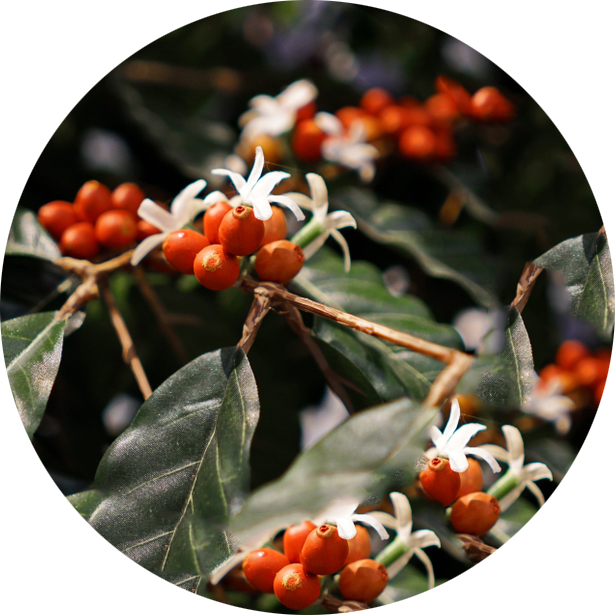(Coffea Arabica)
It would not be an exaggeration to say that coffee is probably the most famous and popular plant in the world. Alongside black tea, it is a drink that the majority of the world population reaches for as soon as they open their eyes, not to mention the various rituals and social aspects involved in drinking it. If we look at coffee plantations, which are located at altitudes over 1,000 metres, sometimes even up to 2,200 metres, where this plant thrives best, we will surely wonder why it ever occurred to anyone to peel the coffee fruit and then roast, grind and brew its beans. According to a legend, for which there is no basis in historical records, coffee was first discovered by the Ethiopian shepherd Kaldi, who noticed a strong effect that the previously unknown berries had on his goats. However, the first records of coffee drinking date back to the 15th century – people in Yemen, on the southern tip of the Arabian Peninsula, were the first to roast coffee beans and to brew coffee more or less in the same way as we do today. Perhaps coffee beans arrived there precisely from Ethiopia, via trade routes across the Red Sea, considering that the high slopes in the Horn of Africa provide the ideal soil for this plant. It is also assumed that it later spread throughout the Middle East from there, reached Turkey, and then Indonesia and the American continents. The location where coffee was drunk for the first time can also be found in its scientific name – Coffea Arabica.
The Dutch were the first to work out that there was money to be made in the coffee business; at the beginning of the 17th century they traded and then cultivated it in Indonesia. It soon reached Oxford, where the first coffee house, Queen’s Lane Coffee House, was opened in 1657, which still serves the beverage today. American settlers brought it to the new continent, where it was initially viewed with mild disgust. However, after American traders had argued with their colonial masters, Great Britain, over the import of tea which prompted the famous Boston Tea Party rebellion in 1773, coffee became popular. Although it reached Brazil much earlier, mass cultivation of coffee there began only in 1822, in places where the rainforest gave way to huge plantations. Why is coffee so popular and what is it about this drink that binds us so tightly to it?
IT PROTECTS US FROM FREE RADICALS
Although this plant is surrounded by controversies, and we often read completely contradictory views about its impact on our body, it is an indisputable fact that coffee is an excellent mental stimulant and that it has very positive effects on our health. The reason that coffee wakes and stimulates us lies in the fact that this plant is rich not only in caffeine, but also in polyphenols and antioxidants.
Oxidative stress has a very negative effect on the body and is a direct cause of cardiovascular diseases, diabetes, cancer and has the power to accelerate the ageing process. If we frequently expose ourselves to the harmful effects of UV rays, pollution, alcohol and tobacco smoke, we only help free radicals to attack our cells unhindered. Chlorogenic, ferulic, caffeic and m-coumaric acids in coffee have strong antioxidant action – the ability to prevent and neutralise the oxidation process that is a consequence of the action of harmful free radicals. When roasted, the brown pigment in coffee – melanoidin – also exhibits this effect. According to some studies, even trigonelline and caffeine are believed to have the same effect.
Unfortunately, processing reduces the level of antioxidants in coffee, but this varies depending on where the coffee is grown. So, for example, Arabica from plantations in Mexico and India contains more chlorogenic acid than coffee grown in China. The entire fruit brims with useful elements, even the part that is discarded after the beans are removed. That is why coffee fruit is increasingly used nowadays to make supplements, which have been proven to have antioxidant properties. The fruit concentrate also has a very favourable effect on the brain, it protects its functions and slows down its ageing. It is believed that coffee could contribute to preventing the onset of Alzheimer’s disease.
The already mentioned chlorogenic acid has another surprise for us: it has been proven to have a very favourable effect on the microbiome in our digestive tract and to prevent obesity. This polyphenol prevents adipogenesis – the formation of adipocytes, fat cells, which is why it is believed that it will play a special role in the treatment of obesity, which today is assuming the proportions of an epidemic.
COFFEE FLOWER IN THE SERVICE OF BEAUTY
The antioxidant properties of coffee are also applicable to the skin, where they have a strong anti-aging effect, especially when it comes to photoaging. Coffee promotes the building of collagen and hydration of the skin; its positive effect on wound healing has also been proven in studies. That is not all, because not only is the coffee fruit medicinal, but so is its flower, whose oil has been increasingly used in anti-aging cosmetics today. This oil with an intense aroma is obtained by extraction from small, fragrant coffee flowers that are harvested in the first bloom, while they are still white. The oil has strong antiseptic, anti-inflammatory and astringent properties (it shrinks pores); thanks to antioxidants, it effectively reduces the signs of skin ageing. It is also used in aromatherapy because, in addition to its intoxicating aroma, it also has the power to reduce stress and even soothe depression. It is also considered a powerful aphrodisiac.
That is why coffee flower oil has earned its place in the top-quality Devi cosmetics made in the Herba Svet laboratory. Anti Age Serum promotes collagen formation and improves skin elasticity; BotoMix Serum, with powerful peptides such as Syn-Ake, hyaluronic acid and medicinal plant extracts has an effect similar to Botox; Marine Collagen cream, with collagen, terpenone, beta glucan and nourishing oils, revitalises the skin and turns back time; the same can be said of the Hyalu Peptide serum; the Illuminative Cream nourishes the skin, fights the signs of ageing and brightens the complexion thanks to pearl powder that it contains; Sensitive Cream nourishes and rejuvenates even the most sensitive skin.
As we can see, this plant is our great friend, and its flower makes our face look more youthful. When it comes to Devi cosmetics, we need very little – one drop of the serum in the morning after washing will do the job. And when it comes to drinking coffee, one should practise moderation – two or three cups a day is quite sufficient – because just like any medicine, coffee should be consumed in small doses.
